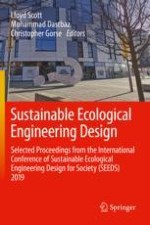2020 | OriginalPaper | Chapter
Does the Planning System in England Deliver a Sustainable and Resilient Built Environment? A Study of the Experience of Town Planners
Authors : Niamh Murtagh, Nezhapi-Delle Odeleye, Chris Maidment
Published in: Sustainable Ecological Engineering Design
Publisher: Springer International Publishing
Activate our intelligent search to find suitable subject content or patents.
Select sections of text to find matching patents with Artificial Intelligence. powered by
Select sections of text to find additional relevant content using AI-assisted search. powered by
